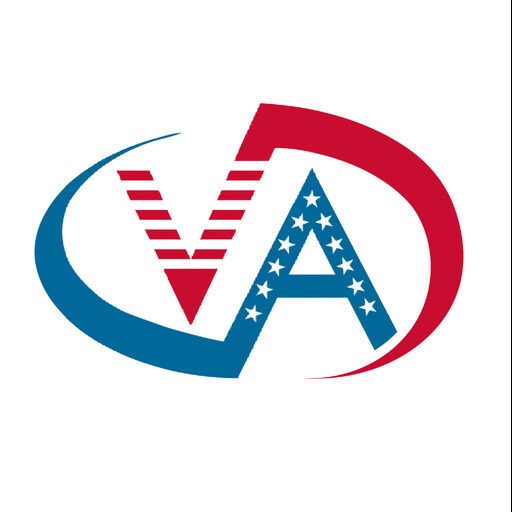In a major update to VA home loan policy, the Department of Veterans Affairs now allows eligible Veterans to pay buyer-broker fees when purchasing a home with a VA loan.
Effective August 10, 2026, this temporary rule change aims to level the playing field for VA buyers who were previously restricted from covering these fees due to federal regulations.
Prompted by the real estate industry’s shift following the NAR commission lawsuit settlement, this policy ensures Veterans won’t be disadvantaged in competitive markets where sellers no longer offer buyer-agent compensation.
Here’s what every Veteran needs to know about navigating the change.
How the New Policy Affects Veterans
This change is a game-changer, but it’s not without complexity. Here’s a breakdown of what it means for Veterans using VA loans:
- Increased Flexibility: You can now pay your buyer’s agent directly, ensuring you have expert guidance to navigate competitive markets.
- Negotiation Power: You can still ask sellers to cover buyer-broker fees as a concession, which doesn’t count toward the VA’s 4% cap on seller concessions.
- Market Competitiveness: Paying your own agent’s fees means you’re not reliant on sellers offering compensation, which could make your offer more appealing in a hot market.
- Cost Considerations: These fees can’t be financed into your VA loan, so you’ll need sufficient liquid assets at closing. Documentation, like the buyer-broker agreement, must be included in the loan file.
The VA’s goal is to prevent Veterans from being sidelined in a market where inventory is tight and competition is fierce. But there’s a catch: while this opens more doors, it could mean higher out-of-pocket costs for some buyers. Let’s explore how this balances out.
Benefits and Challenges of the Policy Change
Benefits for Veterans
The new rule empowers Veterans in several ways:
- Access to Representation: You can hire a skilled real estate agent without worrying about whether the seller will cover their commission. This is crucial in markets where unrepresented buyers struggle to compete.
- Equal Footing: By allowing Veterans to pay buyer-broker fees, the VA ensures you’re not disadvantaged compared to buyers using conventional or FHA loans.
- Negotiation Flexibility: Sellers can still pay your agent’s fees, and since these don’t count toward the 4% concession cap, you can negotiate other closing costs, like the VA funding fee or hazard insurance.
- Temporary Fix with Long-Term Potential: The VA is monitoring the market and plans to develop permanent guidance, ensuring Veterans’ needs are met as the industry evolves.
Challenges to Consider
While the policy aims to help, it’s not perfect. Here are some potential hurdles:
- Out-of-Pocket Costs: Since buyer-broker fees can’t be rolled into the loan, you’ll need cash reserves at closing, which could strain budgets for some Veterans.
- Agent Agreements: You must sign a written buyer-broker agreement before touring homes, detailing the agent’s services and fees. Some worry this could lock Veterans into long-term contracts with agents who don’t fully meet their needs.
- Market Variability: Fees must be “reasonable and customary” for the local market, but what’s considered reasonable can vary widely, potentially leading to unexpected costs.
- Risk of Unscrupulous Agents: As one Veteran commenter noted on a VA news post, there’s concern that some agents might push Veterans into agreements without fully understanding their needs, especially if fees become a bigger focus.
To avoid pitfalls, work with a real estate professional experienced with VA loans. The Veterans United Realty network can connect you with agents who understand the program’s nuances.
Comparing VA Loans to Other Loan Types Post-Policy Change
To understand the impact, let’s compare VA loans to conventional and FHA loans in the context of the new buyer-broker fee rules:
| Loan Type | Buyer-Broker Fees | Down Payment | Mortgage Insurance | Seller Concessions |
|---|---|---|---|---|
| VA Loan | Can be paid by buyer or seller (as of Aug 10, 2026); not financed into loan | None required | None required | Up to 4% (buyer-broker fees excluded) |
| Conventional | Typically paid by buyer or negotiated with seller | 3-20% | Required if <20% down | Varies, often 3-6% |
| FHA Loan | Can be paid by buyer or seller | 3.5% minimum | Required for life of loan (unless 10%+ down) | Up to 6% |
This table shows VA loans remain advantageous due to no down payment or mortgage insurance, but the new fee structure aligns them closer to other loan types in terms of buyer responsibility.
VA Funding Fee and Other Closing Costs
While the buyer-broker fee change is significant, it’s just one piece of the puzzle. VA loans come with other costs, like the VA funding fee, which ranges from 1.25% to 3.3% of the loan amount, depending on your military status and whether it’s your first or subsequent loan. For example, a first-time VA borrower with no down payment on a $300,000 loan would pay a $6,300 funding fee (2.1%). You can roll this into the loan, but buyer-broker fees must be paid upfront. Here’s a quick look at typical VA loan closing costs:
| Cost Type | Estimated Range | Notes |
|---|---|---|
| VA Funding Fee | 1.25-3.3% of loan | Waived for disabled Veterans or certain surviving spouses |
| Appraisal Fee | $400-$1,200 | Varies by location; paid upfront |
| Termite Inspection | $50-$200 | Required in some states; typically seller-paid |
| Origination Fee | Up to 1% of loan | Covers lender processing; some non-allowable fees apply if charged |
For a detailed breakdown, check the VA’s guide on funding fees and closing costs.
How to Navigate the New Rules as a Veteran Homebuyer
So, you’re ready to buy a home with your VA loan. How do you make the most of this policy change? Here’s a step-by-step guide:
- Find a VA-Savvy Agent: Choose an agent familiar with VA loans and the new fee structure. Ask about their experience and how they’ll handle buyer-broker agreements.
- Review the Buyer-Broker Agreement: Before touring homes, you’ll need to sign an agreement outlining the agent’s services and fees. Negotiate terms upfront and ensure they’re reasonable for your market.
- Budget for Fees: Since buyer-broker fees can’t be financed, confirm you have enough cash for closing costs, including potential agent commissions (often 2-3% of the purchase price).
- Negotiate with Sellers: Ask the seller to cover your agent’s fees as a concession. This can save you thousands and doesn’t count toward the 4% cap.
- Understand Local Norms: Research what’s “reasonable and customary” for buyer-broker fees in your area to avoid overpaying.
- Stay Informed: The VA’s policy is temporary, so keep an eye on updates via the VA News website for permanent guidance.
What Veterans Are Saying About the Change
Veterans have mixed feelings about this shift. Some see it as a win, giving them more control and access to top-tier agents. Others, like a commenter on a VA news article, worry it could lead to fewer agents willing to work with VA buyers if fees aren’t covered by sellers. One Veteran shared frustration from past experiences, noting agents often ignored their preferences and pushed properties that didn’t fit their needs.
This underscores the importance of choosing an agent who listens and understands the VA loan process. To address concerns, the VA encourages Veterans to negotiate fees and work with professionals who prioritize their interests. The Mortgage Bankers Association has praised the VA’s temporary measure and is pushing for a permanent rule to solidify these protections.
Frequently Asked Questions
1. When did the VA policy change take effect?
The policy, effective August 10, 2026, allows Veterans to pay buyer-broker fees for VA loans. It’s a temporary variance until permanent guidance is issued.
2. Can Veterans still ask sellers to pay buyer-broker fees?
Yes, Veterans can negotiate for sellers to cover these fees, which don’t count toward the VA’s 4% seller concession cap.
3. Are buyer-broker fees financed into VA loans?
No, these fees cannot be rolled into the loan amount. Veterans must pay them upfront at closing.
4. What are “reasonable and customary” fees?
Fees must align with local market norms, typically 2-3% of the home’s purchase price, but this varies by region.
5. Do Veterans need a buyer-broker agreement?
Yes, a written agreement detailing the agent’s services and fees is required before touring homes.
6. How does this affect VA loan competitiveness?
The policy ensures Veterans can hire agents without relying on seller-paid commissions, making their offers more competitive.
7. Can Veterans avoid buyer-broker fees entirely?
Yes, if the seller agrees to pay the fees or if you work with an agent who waives them, though this is less common.
8. Where can I find more details on this policy?
Visit the VA’s Loan Guaranty Service Resources for Circular 26-24-14 and related guidance.
9. Will this policy become permanent?
The VA is monitoring the market and plans to develop permanent rules through a notice-and-comment process.
10. How do I find a VA-friendly real estate agent?
Look for agents through trusted networks like Veterans United Realty who specialize in VA loans.
What’s Next for Veterans and the VA Loan Program?
The VA’s temporary policy is a pragmatic response to a rapidly changing real estate landscape. By allowing Veterans to pay buyer-broker fees, the VA ensures you can compete in a market where sellers may no longer cover these costs.
But it’s not a one-size-fits-all fix. You’ll need to weigh the benefits of professional representation against potential upfront costs and carefully vet your agent to avoid being locked into an unfavorable agreement. As the VA works toward a permanent solution, stay proactive.
Research local market trends, negotiate smartly, and lean on resources like the VA’s official website and trusted lenders to guide your homebuying journey. The VA loan remains one of the most powerful tools for Veterans, offering no down payment, no mortgage insurance, and flexible terms. With the right preparation, this policy change can help you secure the home you’ve earned.

The VA Loan Network Editorial Team is comprised of dedicated mortgage specialists and financial writers committed to providing veterans and service members with accurate, up-to-date information on VA loan benefits, eligibility, and the home-buying process.








